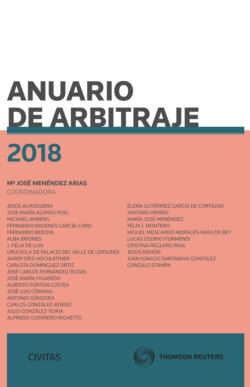Читать книгу Anuario de arbitraje 2018 - Mª José Menéndez Arias - Страница 16
На сайте Литреса книга снята с продажи.
VII. CONCLUSION
ОглавлениеIt is not so much that international arbitration has become overly Americanized as it is that, through increasing caseloads and greater connectivity among practitioners in the field, arbitration has become «a large specialized industry in its own right91)». As numerous sources tell us, and experience confirms, this specialization has led to greater formalization and harmonization of practices92), with a broad consensus on a range of acceptable practices, some of which originated in the United States (or other common-law jurisdictions) and some of which did not. This state of affairs can be attributed to many factors, not all of them having to do with the United States: the civil-law starting point that made it inevitable that common-law elements would come to play a role as international arbitration became truly global, the consent-based nature of arbitration itself preventing the domination of any one legal tradition93), the open-ended nature of the institutional and model rules of arbitration, the relatively small size of the community of practitioners, the high volume of international conferences, English being the lingua franca of international business, the United States having the world’s largest economy for over a century, the expansion of arbitrability resulting in increasingly complex and high-value arbitrations which led to more documents, longer briefs, more witnesses, and greater willingness to use win-at-all costs tactics. As Elena Helmer noted:
Arbitration departed from the extremes of both legal traditions [common law and civil law] in favor of more settled, middle ground practices which are acceptable to parties coming from different countries and different legal systems. American influence on arbitral procedure remains significant, but so does Continental influence. The future is somewhere in the middle, with the best of both styles being used to the advantage of the parties and in the interest of the fair and speedy resolution of a dispute94).
Regardless of the normative value one places on the Americanization of international arbitration, the very fact that there is a good deal of discussion over it shows that international arbitration practitioners are engaged in a process of deliberative adaptation through which they will use any tools they find helpful, regardless of origin.
